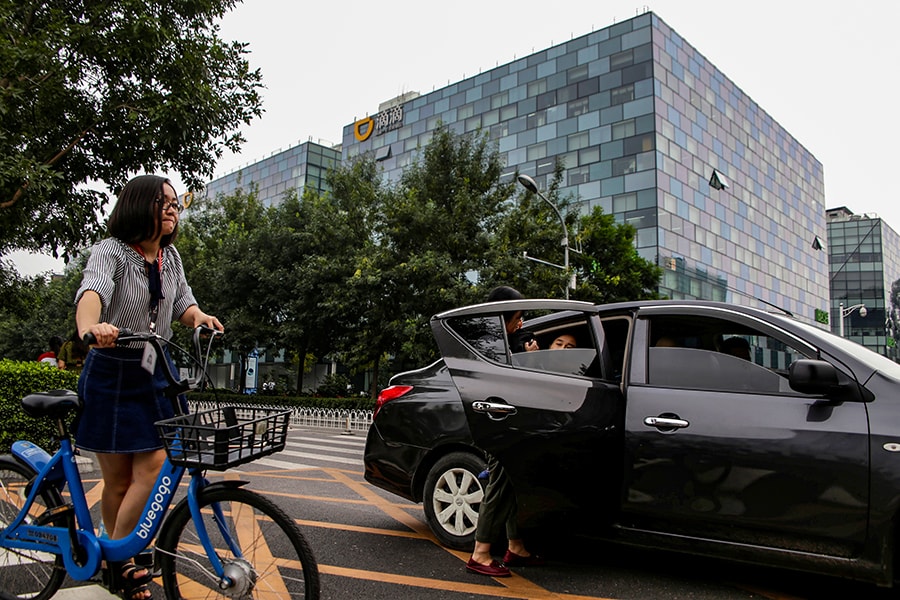
Uber is losing big money, as China cracks down on Didi
Since Didi, China's largest ride-hailing company, went public in July, it has faced increasing pressure from Beijing on data security, privacy and worker protections
 Passengers sit into a car provided by Didi Chuxing's Kuaiche service in front of its headquarters building in Beijing, China; Image: REUTERS/Jason Lee
Passengers sit into a car provided by Didi Chuxing's Kuaiche service in front of its headquarters building in Beijing, China; Image: REUTERS/Jason Lee
China’s crackdown on its Big Tech companies continues to have reverberations around the world. On Thursday, Uber said it lost $2.4 billion in its most recent quarter, largely because of its investment in Chinese ride-hailing company Didi.
The Didi investment weighed heavily on what was otherwise a fairly upbeat quarter for Uber, as both customers and drivers increasingly returned to the road. The loss was 123% more than the same quarter a year ago, when Uber’s business was reeling from the pandemic.
Since Didi, China’s largest ride-hailing company, went public in July, it has faced increasing pressure from Beijing on data security, privacy and worker protections. The crackdown caused Didi’s stock price to tumble and led to a $3.2 billion hit for Uber, which sold its Chinese business to Didi in 2016 in exchange for equity. That loss was offset by other investments.
Aside from its loss on Didi, Uber, which is based in San Francisco, said its business continued to recover from the pandemic. Its revenue was $4.8 billion, a 72% increase from the same period a year ago, which exceeded analyst expectations. Uber’s gross bookings, the total amount it brings in before fees and payments to drivers, increased 57% to $23.1 billion.
The company said that, excluding certain expenses such as stock compensation and the Didi losses, it had reached its first profitable quarter.
©2019 New York Times News Service







